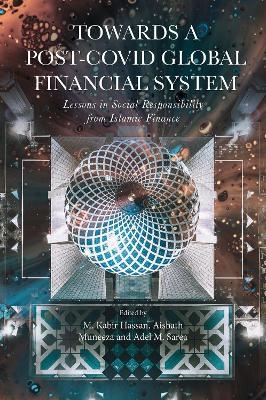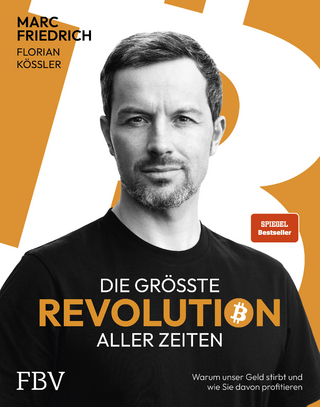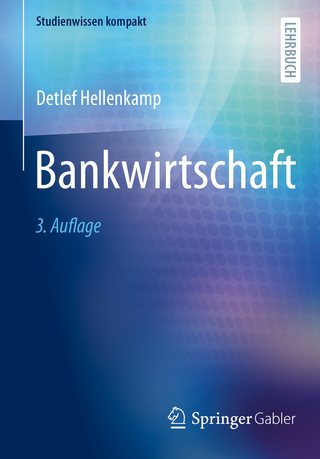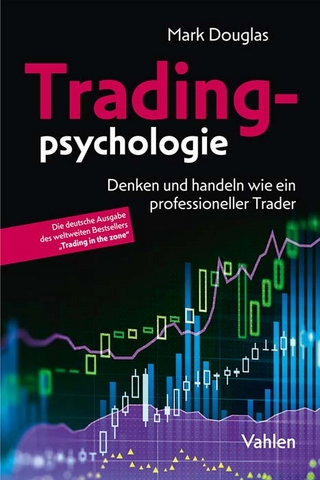
Towards a Post-Covid Global Financial System
Emerald Publishing Limited (Verlag)
978-1-80071-626-1 (ISBN)
The impact of COVID-19 has exposed major cracks in the global financial system and has severely undermined global financial stability. Never have the shortcomings of universal financialization - the dominant principle of the global financial system for the past thirty-odd years - been more obvious or more painful.
Islamic finance provides ways forward: based on commercial and social modes of risk-sharing and financing, it offers radical structural solutions to the health, human and financial crises faced in this unprecedented time. In Towards a Post-Covid Global Financial System: Lessons in Social Responsibility from Islamic Finance, an international team of experts explore how COVID-19 has affected the most vulnerable parts of the global economy; how it has been met by Islamic banking and finance specifically; and how the principles of Islamic social finance could be used to have a fairer, more resilient Islamic finance system for all.
M. Kabir Hassan is Professor of Finance in the Department of Economics and Finance in the University of New Orleans, Louisiana, USA. He currently holds three endowed Chairs - Hibernia Professor of Economics and Finance, Hancock Whitney Chair Professor in Business, and Bank One Professor in Business - in the University of New Orleans. Professor Hassan is the winner of the 2016 Islamic Development Bank (IDB) Prize in Islamic Banking and Finance. Aishath Muneeza is Associate Professor at the International Centre for Education in Islamic Finance (INCEIF), Malaysia. She is the first female Deputy Minister of the Ministry of Islamic Affairs and was the Deputy Minister of the Ministry of Finance and Treasury of the Republic of Maldives. Adel M. Sarea is Associate Professor of Accounting and Economics at Ahlia University, Bahrain. He has published numerous papers, book chapters and edited several books and serves on the editorial team of several international journals published by Elsevier, Emerald and Taylor & Francis. He is the winner of Emerald Literati Award 2014.
Foreword; Mohamad Akram Laldin
Part 1: Resilience of Islamic Financial System in the midst of the Pandemic
Chapter 1. The Impact of the COVID-19 Pandemic on Islamic Finance: The Lessons Learned and the Way Forward; M. Kabir Hassan, Aishath Muneeza, and Adel Sarea
Chapter 2. OIC Economies during the COVID-19: Implications and Recommendations; M. Kabir Hassan, Saeed Awadh Bin-Nashwan, and Aishath Muneeza
Chapter 3. COVID-19 and Islamic Finance: A Practitioners' view and Financial Accounting Investigation; Paolo Biancone, Silvana Secinaro, Davide Calandra, and Federico Chmet
Chapter 4. COVID-19 and Resilience of Islamic Home Financing: Enhanced Musharakah Mutanaqisah (EMM) Model as an Example; Alam I. Asadov
Chapter 5. Measuring Good Governance for Islamic Financial Institutions for Achieving Islamic Social Finance Objectives: The Need for Shariah Governance Index; Nor Asila Binti Nazmi, Rusni Hassan, and Abdul Rahim Abdul Rahman
Part 2: Pandemic Transformation of Zakat and Waqf Management Practices
Chapter 6. Internationalization of Zakat to Serve Humanity in the Midst of COVID-19: Using International Organizations as Intermediaries of Zakat; Jemilah Mahmood, M. Kabir Hassan, and Aishath Muneeza
Chapter 7. Waqf To Support Healthcare Well-Being Mission: The Proposed Model for Corporate Waqf For Healthcare (CWFH); Rusni Hassan and Khairul Fikry Jamaluddin
Chapter 8. Modelling Effective Zakat Management for the 'stans' of Central Asia and Establishing Pandemic Resilience; Ziyaad Mahomed
Chapter 9. A Review on Governance and Best practices in Waqf Management for Sustainable Development in Selected Malaysian States and Other Countries; Rusni Hassan, Noor Mahinar Abu Bakar, and Noor Haini Akmal Abu Bakar
Chapter 10. Role of Zakat in Responding to COVID-19 Pandemic: Lessons Learnt and Way Forward; Randi Swandaru and Magda Ismail Abdel Mohsin
Part 3: Case Studies of Islamic finance and Pandemic Innovations
Chapter 11. The Need to Digitize Sukuk Issuance Amid COVID-19 Crisis; Sherin Kunhibava, Zakariya Mustapha, Aishath Muneeza, Auwal Adam Sa’ad, and Muhammad Ershadul Karim
Chapter 12. The COVID-19 Pandemic: Conceptual Framework for the Global Economic Impacts and Recovery; Md. Jafor Ali, Abul Bashar Bhuiyan, Norhayah Zulkifli, and M. Kabir Hassan
Chapter 13. COVID-19 Pandemic and Islamic Social Finance Products in Iran; Majid Pireh
Chapter 14. Islamic Finance Provides Better Solutions in Overcoming the Financial Distress Ascribable to COVID-19: Evidence from Malaysia; Mohd Johan Lee
Chapter 15. Stock Market Volatility Following Uncertainty of Covid-19 Outbreak; News Impact Curve Analysis Approach; Anwar Hasan Abdullah Othman, Razali Haron, and Salina Kassim
| Erscheinungsdatum | 14.01.2022 |
|---|---|
| Verlagsort | Bingley |
| Sprache | englisch |
| Maße | 152 x 229 mm |
| Gewicht | 577 g |
| Themenwelt | Wirtschaft ► Betriebswirtschaft / Management ► Finanzierung |
| Betriebswirtschaft / Management ► Spezielle Betriebswirtschaftslehre ► Bankbetriebslehre | |
| Wirtschaft ► Volkswirtschaftslehre ► Finanzwissenschaft | |
| Wirtschaft ► Volkswirtschaftslehre ► Makroökonomie | |
| ISBN-10 | 1-80071-626-5 / 1800716265 |
| ISBN-13 | 978-1-80071-626-1 / 9781800716261 |
| Zustand | Neuware |
| Haben Sie eine Frage zum Produkt? |
aus dem Bereich


